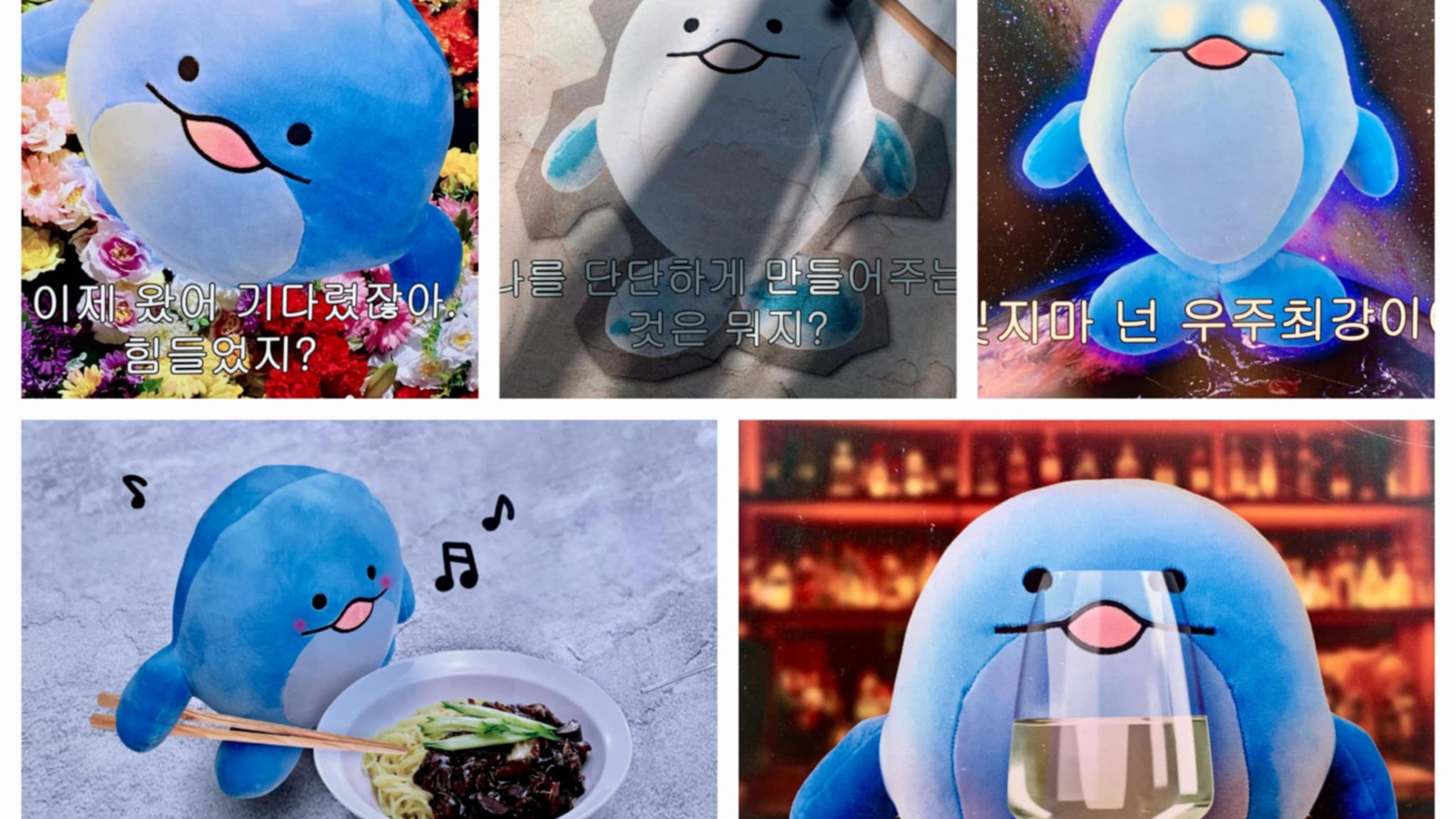
SPECIAL
(Reading time: 5 minutes)
During my college years, I absolutely adored (read: “hated”) endless analyses of the deeper meaning behind all kinds of literary works—usually ones that seemed more improbable than probable.
What was the author trying to say?
What’s hidden between the lines?
What’s the true meaning of the work?
Many times I wanted to shout “NOTHING”! Maybe the author just wanted to have some fun, or maybe they were a graphomaniac, high on something, and saw green flying dwarves… Couldn’t that be the case, professor?
No. We are in the sacred halls of higher education; we aim for the stars. We don’t read books just for the sheer joy of green dwarves.
Of course, I knew the answer, so I never dared ask such a foolish question. Instead, I studied the work and prepared a revelation of the hidden meaning the teachers wanted to hear.
Ten years later, when I started studying Korean in my free time, I realized just how often and fondly Koreans play with hidden meanings. They’re superstitious folks, and their language lends itself to ambiguity—just open your mouth a bit more, and you’ve got a completely different word. The numbers in your birth date mean something. Dreaming about a carp means something. Giving someone toilet paper as a gift means something. The shape of a hole in a rock means something. Everything means something! So those school days caught up with me again…
And then, on a seaside promenade near Mokpo, we stumbled upon five small signs. Each one featured an adorable plush whale accompanied by a slogan in Korean. My paranoid self looked skeptically at the blue cetacean… Was it really just meant to brighten our day with motivational messages? I don’t believe it!
We photographed everything, and after returning to my home country, I spent one very long winter afternoon studying the hidden meaning of “whale talk.” The question remains whether my research aligns with the creators’ intentions or whether I was just making things up. But Koreans believe in the power of intention, so if their peninsula can look like a tiger, then I can find a hidden green dwarf in every whale.
I dug deep, googled in three languages, and now present my linguistic-cultural whale-tastic achievement. 😀
WHAT MAKES ME STRONGER?
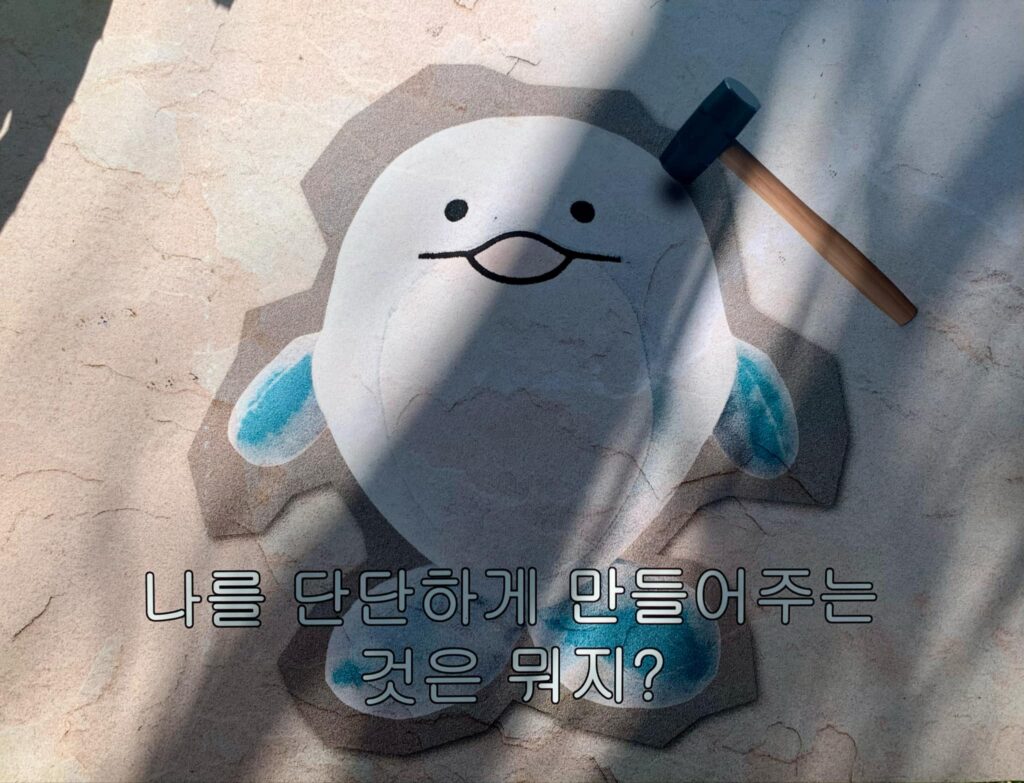
The whale invites you to reflect on your weaknesses and strengths, the people around you, and what drives you forward in life. If you hit rock bottom, you’ll bounce back stronger than ever.
This slogan closely resembles the subtitle of a book by British psychologist Pippa Grange, Fear Less. (if you can’t read Korean, compare the characters under the title) The book focuses on identifying fear within us and overcoming it. Incidentally, the Korean translation even features a whale on the cover. What a coincidence.
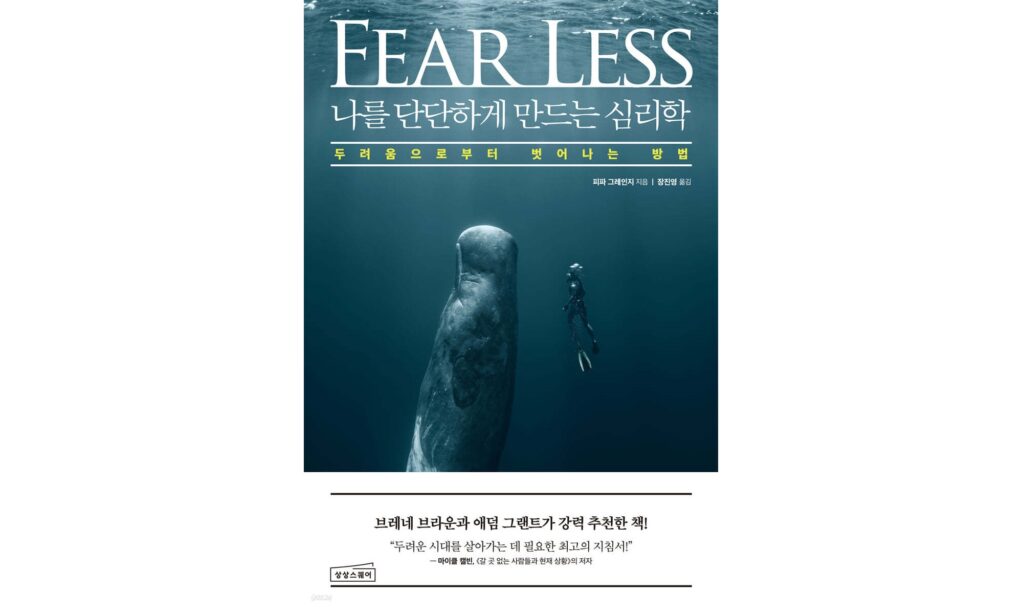
I’LL DEVOUR YOUR DARKNESS
Jjajangmyeon, noodles with black bean paste, is one of Korea’s favorite dishes. The darkness evoked by its color could symbolize the darkness in your soul, right?
South Korea even has a holiday to counterbalance Valentine’s Day. It’s celebrated exactly two months later, on April 14th, and is called Black Day. Dedicated to singles, it’s a day when those without partners eat jjajangmyeon. Why? Because of its black color and the comfort provided by the delicious dish—something singles apparently need plenty of. Eating this “darkness” brings them relief.
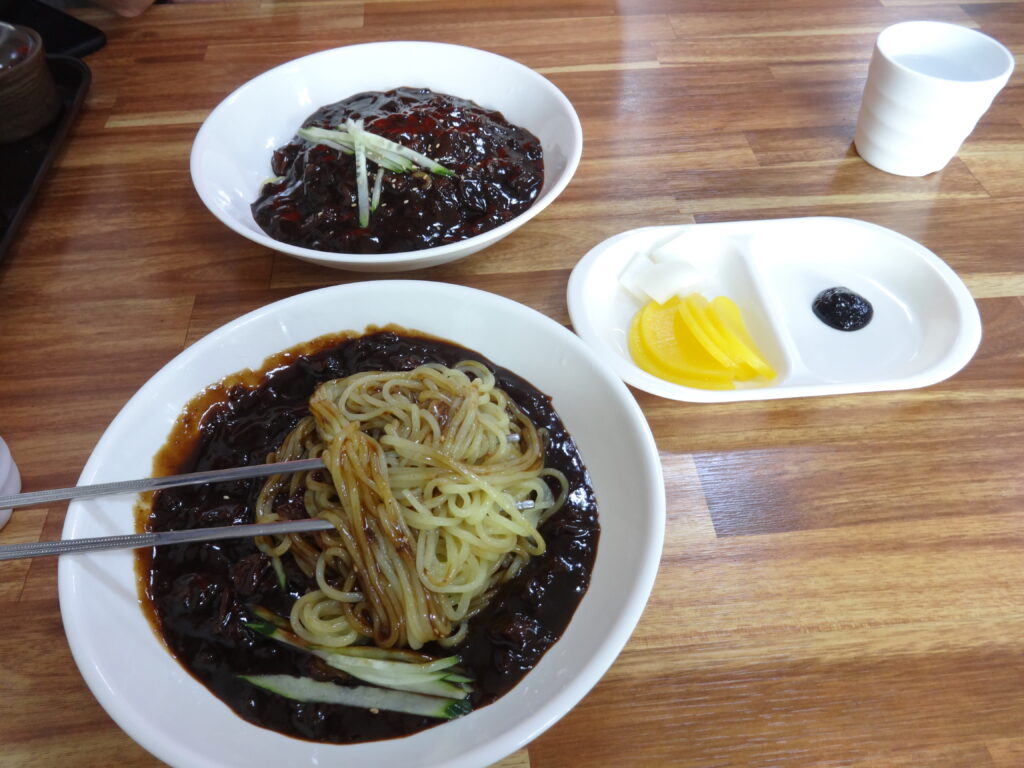
WHY DID YOU COME ONLY NOW? IT MUST HAVE BEEN HARD, RIGHT?
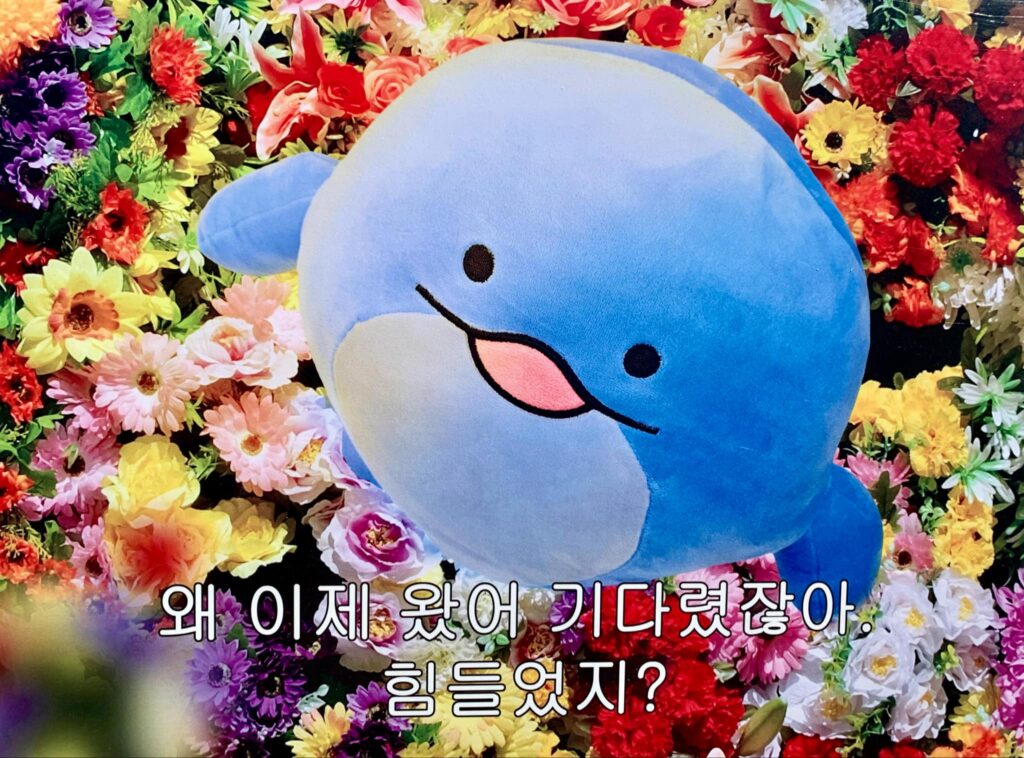
Koreans excel at waiting. Whether it’s in line at a store, for tickets, or at a station, they are pros. They also wait patiently for friends or true love—at least, that’s how it’s portrayed in theirromantic K-dramas. Good things come to those who wait, and so on.
(this phrase is actually borrowed from the drama 18 Again, as seen in the final line of the quote)
DON’T FORGET THAT YOU ARE THE STRONGEST IN THE UNIVERSE
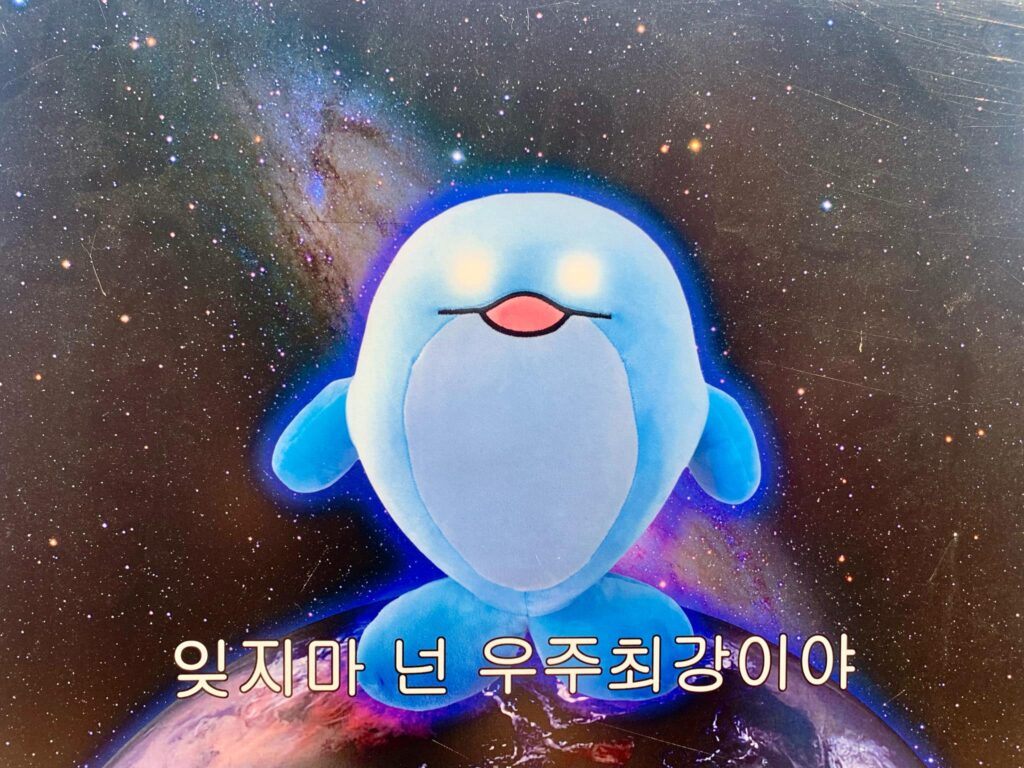
Another motivational phrase. Be strong for yourself, rely on yourself, believe in yourself, and build your self-confidence…
…or have a shot that’ll rocket you straight into the universe! Enter Astro Whale!
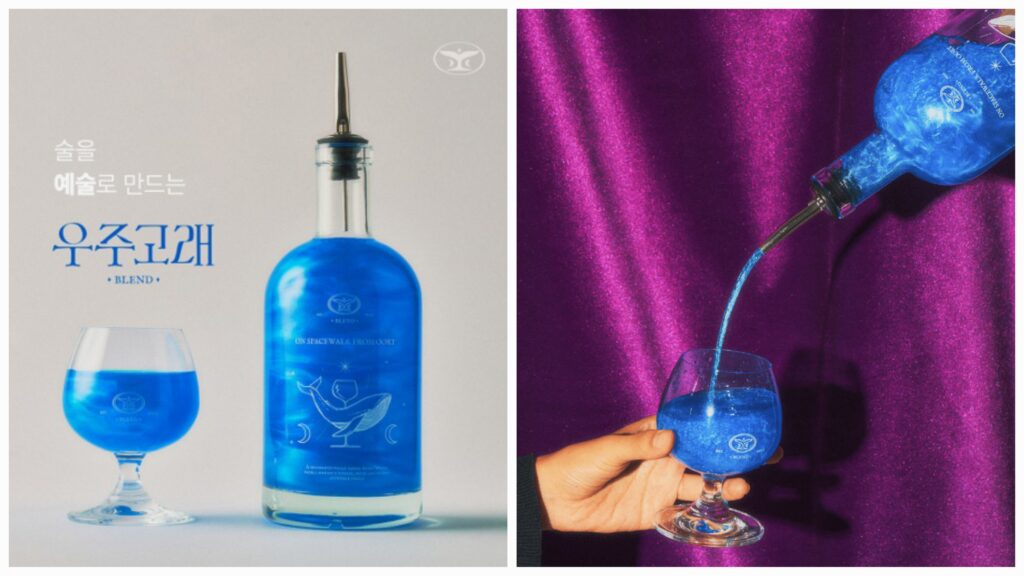
At the Maxpo 2024 (Korea Makgeolli Expo), they unveiled an alcoholic drink with a taste described as “out of this world.” Combining soju with sparkling syrups in various flavors, it fuses tradition with fun under the logo of a whale’s tail.
CHEERS TO YOUR EFFORTS
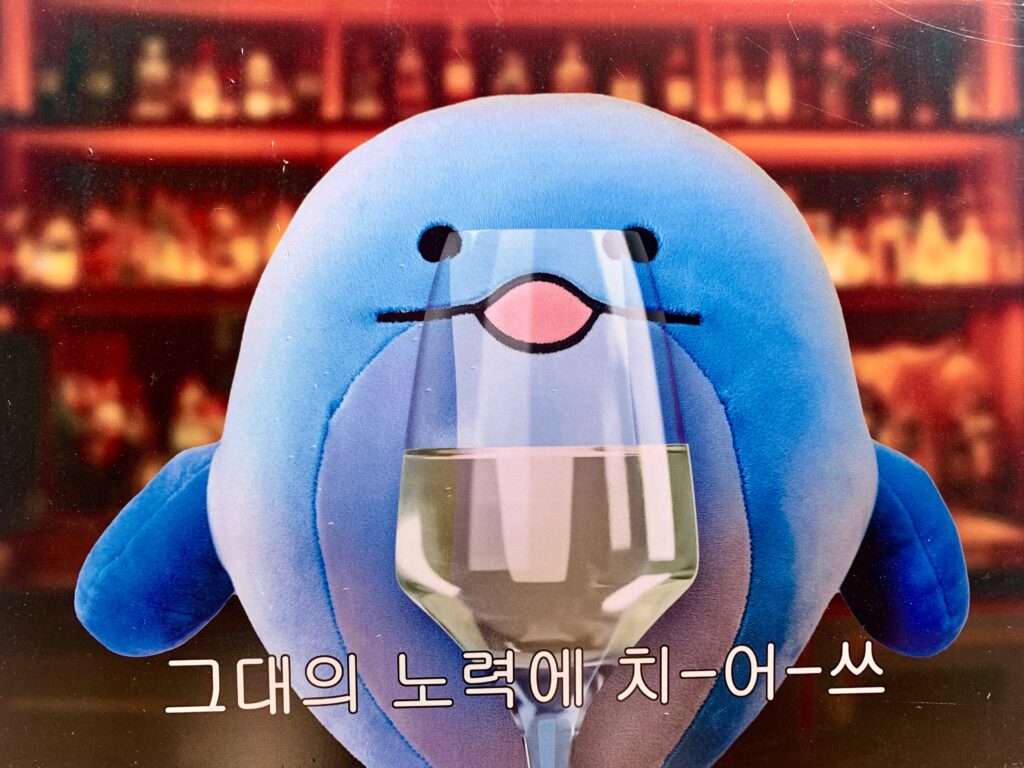
The final whale bids farewell with a slogan that felt fitting given the seaside walk we had completed—and now also suits the genuine effort required to write this article. 😀
The characters at the end of the text are divided by hyphens. When combined, they form the Korean transliteration of the word “cheers” (chi-eo-s), which is precisely the linguistic twist you’re meant to notice. It’s not just about “cheers,” but why the word is divided so oddly.
There’s an etymological conundrum that Korean scholars often discuss: the suffixes of aquatic animal names. Two of them—chi and eo—are particularly puzzling. One suffix should theoretically denote creatures with scales, and the other those without. But in practice, it doesn’t work.
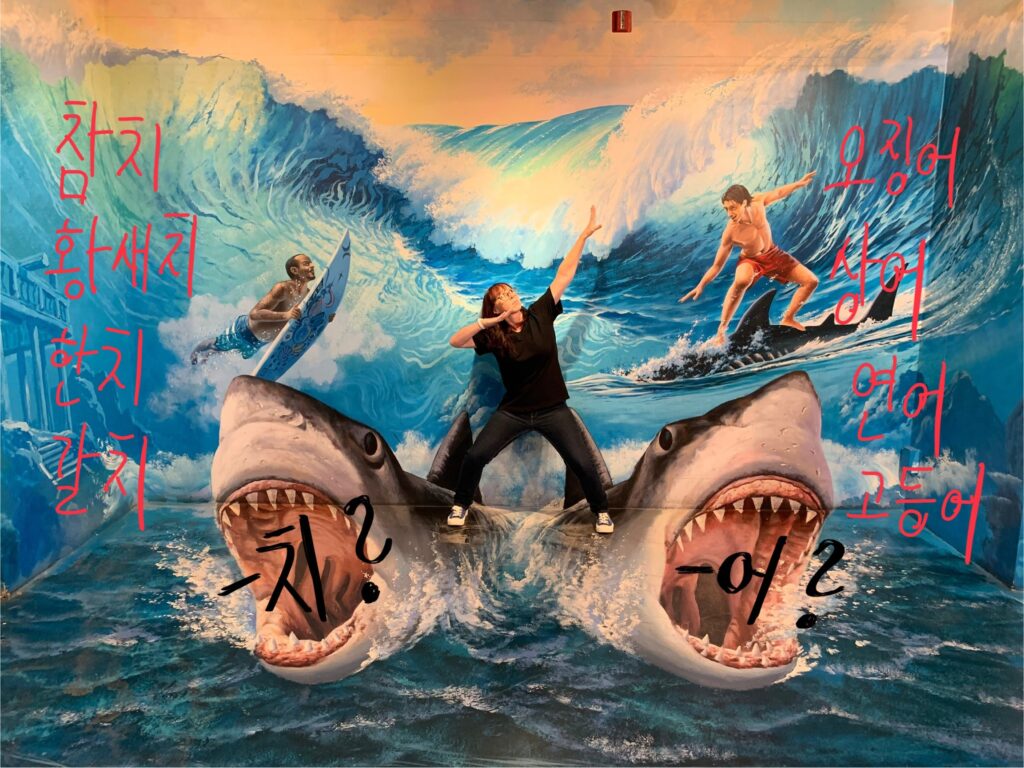
(left: names ending in chi—tuna, swordfish, bigfin reef squid, pipefish;
right: names ending in eo—squid, shark, salmon, mackerel)
And so, all the fauna in the sea continue to swim blissfully unaware of the linguistic havoc their existence causes.
How deeply I managed to uncover the hidden meanings behind the plush whale’s slogans is something I’ll probably never know. But one thing’s for sure: this blood, sweat, and tears enriched my Korean language skills.
And how do you spend your free time? 😀
-endy-
DONKEY’S SPECIAL:
-mj-